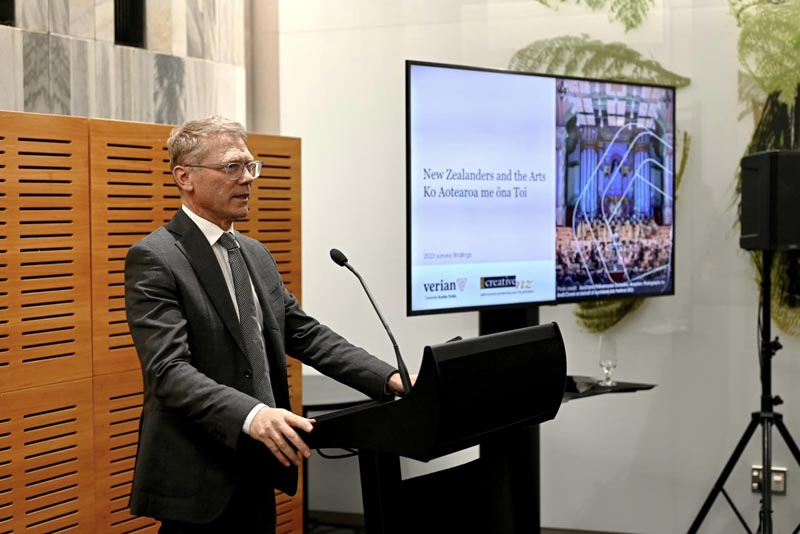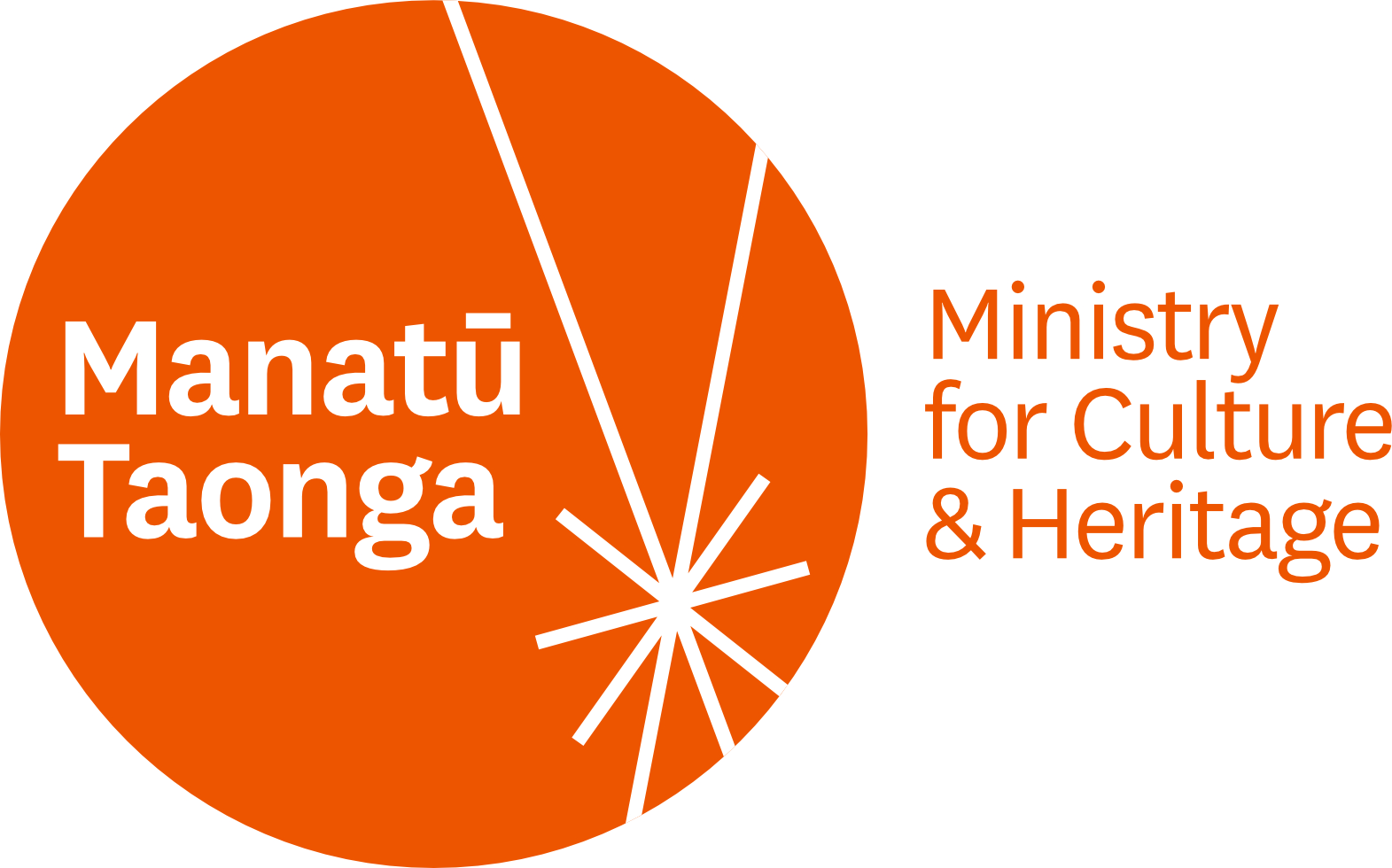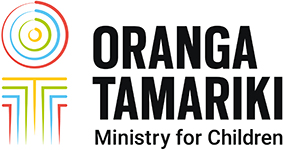For the first time, we have data about Deaf and disabled people – their attitudes, engagement and attendance, and the barriers they often face in accessing the arts.
 Creative New Zealand’s benchmarked research, New Zealanders and the Arts – Ko Aotearoa me ōna Toi, was presented at an event on Tuesday 6 August in the Beehive, hosted by Minister for Arts, Culture and Heritage, Hon Paul Goldsmith, in association with Creative New Zealand.
Creative New Zealand’s benchmarked research, New Zealanders and the Arts – Ko Aotearoa me ōna Toi, was presented at an event on Tuesday 6 August in the Beehive, hosted by Minister for Arts, Culture and Heritage, Hon Paul Goldsmith, in association with Creative New Zealand.
I was grateful to be invited to speak at the event, where I said that this data would help better decisions to be made for Deaf and disabled people to increase their access to the arts and culture as artists, creative practitioners, writers and audience members.
 I thanked our colleagues at Creative New Zealand for including Deaf and disabled people in the survey; the improvements it’s made at a policy level; and the actions it's taken to provide accessible tools for Deaf and disabled people to make funding applications.
I thanked our colleagues at Creative New Zealand for including Deaf and disabled people in the survey; the improvements it’s made at a policy level; and the actions it's taken to provide accessible tools for Deaf and disabled people to make funding applications.
Two visible measures of this commitment are:
- Tapatahi Accessibility Policy and Action Plan, co-designed with a reference group made up of Deaf and disabled artists, and policy and disability rights advocates. Our Lead Accessibility Advisor, Stace Robertson, worked closely with Creative New Zealand as a specialist advisor over two years.
- The website and the range of accessible formats provided for this research. This includes Plain English Large Print, audio, Braille, Easy Read and New Zealand Sign Language.
So what does the data tell us? It tells us that the arts matter to Deaf and disabled people. It shows that:
- 67% of Deaf and disabled people attended arts events in the previous year, in line with the national average (68%).
- 61% of Deaf and disabled people participate in the arts, which is significantly higher than the national average of 52%.
- 43% of Deaf and disabled people said the arts make them less lonely and isolated, compared to 38% of all New Zealanders
This data is welcome news. However, we also know there are some significant barriers to accessing the arts that need to be addressed.
Key barriers to accessing the arts
Survey findings show that some of the key barriers are ticket prices, travel, physical access, a lack of confidence and someone to go with.
 Creative New Zealand has produced a summary of the main adult report in accessible formats, alongside specific reports on young New Zealanders, Māori, Pacific peoples, Asians, and Deaf and disabled New Zealanders. Reports are also available for 13 regions across New Zealand.
Creative New Zealand has produced a summary of the main adult report in accessible formats, alongside specific reports on young New Zealanders, Māori, Pacific peoples, Asians, and Deaf and disabled New Zealanders. Reports are also available for 13 regions across New Zealand.
View the report on the survey findings for Deaf and disabled people (PDF).
In addition, you can explore more insights from this research using Creative New Zealand’s Fact Finder tool, which draws on the data provided in these reports.
Also speaking at the event was Susan Freeman-Greene, Chief Executive of Local Government New Zealand, who emphasised the intrinsic value of the arts and said that “when I don’t have time to read a novel, or visit a gallery, attend a concert, be pumped by a festival or see a cool new piece of theatre or dance– my world is lesser.”
"Fierce advocates of place, community and identity"
She continued: “Councils know this too. As fierce advocates of place, community and identity, they inherently know how the arts brings their towns, cities and regions to life; how it can bring their often wildly different communities together. And how the arts provides moments of respite, joy and hope in some pretty tough times. Without the arts all our worlds are lesser.”
 Susan also said that data was a powerful advocacy tool, particularly at a time when the arts can seem like a “nice-to-have”. Right now, councils are having to make some tough trade-offs, she said, and arts organisations are not exempt from that.
Susan also said that data was a powerful advocacy tool, particularly at a time when the arts can seem like a “nice-to-have”. Right now, councils are having to make some tough trade-offs, she said, and arts organisations are not exempt from that.
“Despite that, councils are one of the biggest investors of the arts in the motu. $590 million a year goes into the sector. Plus, I want to give a shout-out to the $4 million invested through Creative New Zealand’s Creative Communities Scheme, which supports around 1800 local projects across the country.”
Susan is a valuable arts advocate and issued a challenge to get in front of decision-makers with the research.
“Mayors and councils tell me all the time that they like data and want to make decisions that are informed by data. It’s gold to have research like this that makes it clear the arts are not just a nice to have – so get it in front of them.”
There’s an opportunity for Arts Access Aotearoa to build closer relationships with local councils and use this data to harness the potential of the arts, nurture cohesive communities and inspire positive social change.





